The Shocking Truth About What Your Policy Actually Covers
As a Houston landlord, discovering extensive damage to your rental property or facing months of unpaid rent can feel devastating—especially when you realize your insurance policy might not cover what you expected. Many property owners assume their landlord insurance protects them from all tenant-related losses, only to face claim denials when they need coverage most. The reality is that standard landlord insurance policies in Texas have significant limitations and exclusions that can leave you financially exposed. Understanding these gaps before disaster strikes can mean the difference between a minor setback and financial ruin.
💡 Pro Tip: Review your policy’s exclusions section annually—insurers often update coverage limitations without prominently notifying policyholders.
Don’t let insurance hurdles leave you high and dry. Reach out to JCE Law Group to navigate your property claims with confidence. Give us a call at 504-754-5884 or contact us for comprehensive legal support in protecting your investments.
Texas Law and Your Rights as a Property Owner
Under Texas law, landlords have specific rights and responsibilities when it comes to property damage and insurance coverage. According to the Texas Property Code, landlord insurance may cover tenant damage if the damage to the property was unintentional, such as from fire, weather-related damage, or burst pipes. However, if tenant damage was intentional, caused by negligence, carelessness, accidents, or abuse of the premises (vandalism), your landlord policy will not cover it, and you must use the rental security deposit to pay for repairs. This distinction between intentional and unintentional damage forms the cornerstone of most coverage disputes, making it essential to work with a Texas property insurance lawyer who understands these nuances.
💡 Pro Tip: Document the property’s condition with dated photos and video before each new tenant moves in—this evidence becomes crucial if you need to prove intentional damage.
Understanding the Claims Process Timeline
When tenant damage occurs or rent goes unpaid, timing becomes critical for protecting your rights and maximizing your insurance recovery. In the event of a renter’s default on rent, landlord insurance provides direct payment to the landlord typically after a one-month waiting period. Understanding this timeline helps you plan financially and know when to seek legal assistance from a Texas property insurance lawyer if your claim faces delays or denials.
- Day 1-7: Discover and document the damage or rent default, notify your insurance carrier immediately
- Week 2-3: Insurance adjuster inspection scheduled, gather all supporting documentation
- Day 30: Waiting period ends for rent default claims, payment should be initiated
- Day 45-60: Most straightforward claims resolved, complex claims may require additional investigation
- Day 60+: If claim is denied or underpaid, consider consulting with a Houston property insurance attorney
💡 Pro Tip: Keep a dedicated file for each property with all insurance correspondence—email confirmations, claim numbers, and adjuster notes can prove invaluable if disputes arise.
Protecting Your Investment with Help from JCE Law Group
When insurance companies deny legitimate claims or offer settlements far below actual damages, property owners need experienced legal representation. JCE Law Group understands the complexities of Texas property insurance laws and how insurers often interpret policy language to minimize payouts. Whether you’re dealing with a denied claim for tenant damage or fighting for proper compensation for lost rental income, a skilled Texas property insurance lawyer can level the playing field. The firm’s deep knowledge of both landlord-tenant law and insurance regulations provides a unique advantage in challenging unfair claim denials and securing the coverage you paid for.
💡 Pro Tip: Never accept an insurance company’s first settlement offer without reviewing it with an attorney—initial offers typically represent the minimum the insurer hopes you’ll accept.
Critical Coverage Gaps Every Landlord Must Know
Standard landlord insurance policies contain exclusions that frequently surprise property owners. Common policy limits include $100 for cash, $2,500 for items used for business, and $500 for jewelry and watches—amounts that rarely cover actual losses. More significantly, flood damage, mold, intentional tenant damage, and tenant’s personal belongings are not covered under standard landlord insurance plans. Understanding these limitations before purchasing or renewing coverage allows you to make informed decisions about additional coverage options or higher limits that better protect your investment.
The Mold and Water Damage Trap
While burst pipes might be covered, the resulting mold damage often isn’t, as insurers consider mold a maintenance issue. This coverage gap can result in tens of thousands in uncovered remediation costs. Similarly, while sudden water damage from a broken appliance might be covered, gradual leaks that tenants failed to report typically aren’t. A Texas property insurance lawyer can help interpret ambiguous policy language and fight for coverage when the cause of damage falls into these gray areas.
💡 Pro Tip: Add specific mold and water backup coverage endorsements to your policy—the extra premium often pays for itself with just one claim.
Maximizing Rent Loss Coverage and Understanding Waiting Periods
Lost rental income can devastate a landlord’s cash flow, especially in Houston’s competitive rental market. A typical rent-default policy can provide replacement rental income for 1-6 months in a given 1-year policy period, but understanding the fine print is crucial. The standard one-month waiting period means you’ll absorb the first month’s loss before coverage kicks in. Additionally, many policies require proof that you’ve initiated eviction proceedings or that the property is uninhabitable due to covered damage.
Strategic Documentation for Rent Loss Claims
Success in rent loss claims often depends on your documentation. Keep copies of lease agreements, rent payment history, eviction notices, and correspondence with tenants. If the property becomes uninhabitable due to covered damage, document your efforts to make repairs quickly, as insurers may reduce payments if they believe delays extended the loss period. When insurers dispute the validity or duration of rent loss, a Texas property insurance lawyer can advocate for full compensation based on market rates and actual loss periods.
💡 Pro Tip: Calculate your property’s daily rental value and track exact days of lost income—precise documentation often results in higher settlements.
When Tenants Cause Damage: Intentional vs. Accidental Destruction
The distinction between intentional and accidental damage often determines whether your insurance claim succeeds or fails. Texas Property Code provisions and insurance policies typically exclude coverage for intentional acts, but proving intent can be complex. A tenant who accidentally starts a kitchen fire while cooking would likely be covered, but one who punches holes in walls during an argument would not. The challenge arises in borderline cases—is failure to report a leak negligence or intentional damage?
Building Your Case for Coverage
When facing claim denials based on the intentional acts exclusion, property owners benefit from legal guidance. Evidence such as police reports, neighbor statements, and maintenance records can help establish whether damage was truly accidental. Additionally, if multiple causes contributed to the damage—some covered and some excluded—Texas law may still require payment for the covered portions. A Houston property insurance attorney can analyze your specific situation and develop strategies to maximize recovery even in complex scenarios.
💡 Pro Tip: Install security cameras in common areas (following Texas privacy laws)—video evidence can definitively prove whether tenant damage was intentional or accidental.
Frequently Asked Questions
Common Concerns About Landlord Insurance Coverage
Property owners frequently discover coverage gaps only after filing claims, leading to frustration and financial loss. Understanding your policy’s limitations before problems arise helps you make informed decisions about additional coverage and risk management strategies.
💡 Pro Tip: Schedule annual insurance reviews with your agent to discuss coverage changes and ensure your policy matches your current rental situation.
Next Steps After Claim Denials
When insurers deny valid claims or offer inadequate settlements, property owners have options. Texas law provides specific procedures for challenging claim decisions and may entitle you to attorney fees if you prevail.
💡 Pro Tip: Request claim denials in writing with specific policy provisions cited—vague denial reasons often indicate weak insurer positions.
1. What happens if my tenant’s renters insurance should cover the damage?
Your landlord’s insurance won’t cover your tenant’s personal belongings—tenants need their own renters insurance for that protection. However, if tenant negligence damaged your property, you may need to file a claim with your insurance first, and your insurer might then pursue subrogation against the tenant’s renters policy. The average renters policy in Texas costs about $20 a month, making it reasonable to require in your lease agreement.
2. Can I file a claim if my tenant stops paying rent but hasn’t actually moved out?
Most rent default coverage requires either physical vacancy or legal eviction proceedings to trigger coverage. Simply not receiving rent while the tenant remains typically won’t qualify. You’ll need to follow Texas eviction procedures, and coverage usually begins after the one-month waiting period once the tenant vacates or is legally evicted.
3. How do hurricanes or natural disasters affect my coverage for tenant damage?
Under Texas Property Code Section 92.054, if rental premises are totally unusable for residential purposes following a disaster and the loss is not caused by tenant negligence or fault, either party can terminate the lease. Your insurance should cover the property damage from the disaster, but rent loss coverage depends on your specific policy terms. Some policies exclude rent loss from natural disasters unless you have specific business interruption coverage.
4. What if my insurance company says tenant damage was from poor maintenance?
Insurers often claim damage resulted from poor maintenance rather than covered perils to deny claims. Document all maintenance activities, keep receipts, and photograph conditions regularly. If facing this denial reason, consult a Houston property insurance dispute attorney who can challenge the insurer’s characterization and prove the true cause of damage.
5. Are there special rules for damage when evicting a tenant?
Yes, Texas law provides specific procedures for handling abandoned property and damage assessment during eviction. Document everything thoroughly, as vindictive damage during eviction is typically excluded from coverage. However, if you discover pre-existing accidental damage during the eviction process, that might still be covered if reported promptly to your insurer.
Work with a Trusted Property Insurance Lawyer
When insurance companies deny legitimate claims or underpay for covered losses, property owners need experienced legal representation. Understanding the intricate relationship between Texas Property Code provisions and insurance policy language requires focused knowledge that general practice attorneys may lack. Whether you’re facing a complex coverage dispute, bad faith claim handling, or need guidance on policy selection, working with attorneys who handle property insurance matters daily provides distinct advantages in protecting your real estate investments throughout the greater Houston area.
Don’t get caught off guard by unexpected insurance pitfalls. Reach out to JCE Law Group, and we’ll guide you through the complex terrain of property claims. Call us at 504-754-5884 or contact us for clear solutions to protect your rental investments.



